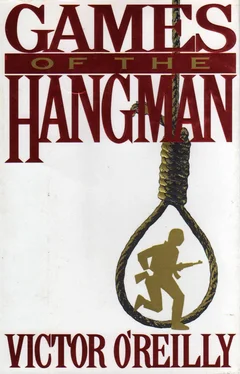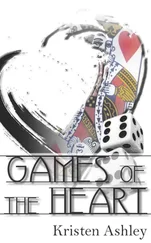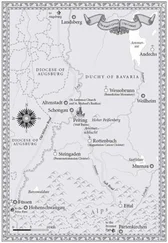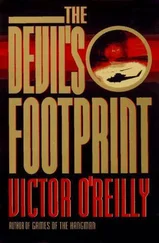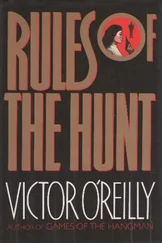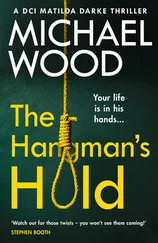Victor O'Reilly - Games of The Hangman
Здесь есть возможность читать онлайн «Victor O'Reilly - Games of The Hangman» весь текст электронной книги совершенно бесплатно (целиком полную версию без сокращений). В некоторых случаях можно слушать аудио, скачать через торрент в формате fb2 и присутствует краткое содержание. Жанр: Триллер, на английском языке. Описание произведения, (предисловие) а так же отзывы посетителей доступны на портале библиотеки ЛибКат.
- Название:Games of The Hangman
- Автор:
- Жанр:
- Год:неизвестен
- ISBN:нет данных
- Рейтинг книги:4 / 5. Голосов: 1
-
Избранное:Добавить в избранное
- Отзывы:
-
Ваша оценка:
- 80
- 1
- 2
- 3
- 4
- 5
Games of The Hangman: краткое содержание, описание и аннотация
Предлагаем к чтению аннотацию, описание, краткое содержание или предисловие (зависит от того, что написал сам автор книги «Games of The Hangman»). Если вы не нашли необходимую информацию о книге — напишите в комментариях, мы постараемся отыскать её.
Games of The Hangman — читать онлайн бесплатно полную книгу (весь текст) целиком
Ниже представлен текст книги, разбитый по страницам. Система сохранения места последней прочитанной страницы, позволяет с удобством читать онлайн бесплатно книгу «Games of The Hangman», без необходимости каждый раз заново искать на чём Вы остановились. Поставьте закладку, и сможете в любой момент перейти на страницу, на которой закончили чтение.
Интервал:
Закладка:
The corporal manning the radio back-rolled out of the Land Rover just as a burst of fire from Dieter blew the high-powered transceiver apart in a shower of sparks and disintegrating electronics. The canvas cover of the Land Rover caught fire, and flames licked along the vehicle.
The corporal crawled behind the empty patrol car as the combined fire of the two terrorists tore through the thin metal of the bodywork and shattered its windows in a cascade of glittering fragments. Blood began to stream from cuts on his face. A bullet ripped open the calf of his right leg, sending a spasm of agony through his body and paralyzing him with shock for several precious seconds.
In stark desperation, scarcely believing what was happening, the soldier unslung the Carl Gustav submachine gun from his shoulder and worked the cocking handle. A high-power nine-millimeter round slid into the breech.
Bullets pierced the fuel tank of the police car, and gasoline drained into a spreading pool across the road.
There was a lull in the firing.
Dieter changed magazines. Tina waited. The collapsible butt of her machine pistol was now fully extended and nestled into her shoulder. She steadied herself against the rented Ford. As the corporal raised his pain-racked body into firing position from behind the police car, she fired twice on single shot. His neck pumping blood and his collarbone smashed, the corporal spun backward and slid into the ditch. Tina changed magazines.
For a few moments there was silence. Then the two terrorists became aware of the crackle of the flames from the burning Land Rover and the gurgling and intermittent screams of the dying Lima Quirke. Tina walked across to where he lay. His agonized moans were getting on her nerves. She pointed her machine pistol at his head and blew away his jaw. She saw that he was still alive, but the noise had ceased.
"Fool," she said quietly, and walked away.
Dieter removed his hunting knife from the back of the other policeman. The body did not stir. He paused reflectively, then, without bothering to turn the body over, he jerked back the policeman's head and cut his throat. A gout of arterial blood spread across the middle of the road and made islands of the empty cartridge cases. Dieter cleaned his knife on the corpse's blue uniform and replaced it in the sheath clipped to his belt. He shivered in the chill March wind. He felt excited and feverish, almost omnipotent. He felt the same kind of exhilaration after a particularly difficult off-piste ski jump, but this was even better. He put his right hand into the pool of blood next to the policeman and then brought it, dripping, very close to his face. It was visible proof of his power to kill. He could smell it. He could taste it. He stood mesmerized for several long seconds.
The wounded corporal could see her legs under the car from where he lay on the ground. Those long, tanned, nylon-clad limbs were unmistakable. Slowly he inched the leather ammunition case containing spare Gustav clips to his front. It seemed to take forever. The rough surface of the road caught at the thick leather, and he had little strength left. Pain dominated his every movement.
HE rested the submachine gun on its side, using the ammunition case as a firing platform. It would give him a few centimeters of ground clearance. It would have to be enough.
He aimed. Blood and sweat dripped into his eyes, and his vision became blurred and uncertain. HE blinked several times and sighted again. The wooden pistol grip was slippery with blood. His vision was going. He lost all track of time.
He could hear voices. He could see the long legs again. He squeezed the trigger, and the shuddering weapon leaped against his riven body. The hot brass of ejected cartridge cases scorched his face. He held the trigger until the magazine was empty. Just a moment too late he thought of the leaking gasoline. He slipped into unconsciousness before the pool of fuel, ignited by the muzzle blast of his Gustav, exploded – and patrol car and armyLand Rover were engulfed in flames.
Black smoke fouled the sky.
Fitzduane replaced the telephone receiver with a sense of relief. He had been working on the von Graffenlaub file for more than eleven hours almost without a break, and he was tired and hungry.
The contents of the file and related papers lay scattered across the top of the polished oak slab on trestles that Etan used as a desk. The information was helping build up a more complete picture of the von Graffenlaub family and its circumstances, but it was slow work. Despite the extensive network of sources and contacts typical of a successful working journalist and the advantage of an initial file from Kilmara, he was having a harder time putting together a comprehensive picture of Rudi's Swiss background than he had expected.
Most of his difficulties seemed to have to do with Switzerland. He had been reluctant to call Guido. His other contacts could tell him – at times in the most intimate detail – about such matters as the latest financial scandal in the Vatican or who was bribing whom in Tanzania or which ballet dancer was sleeping with which member of the Politburo in Moscow, but any question to do with any aspect of Switzerland seemed to result in a resounding yawn.
The consensus seemed to be that Switzerland was a boring bloody country full of boring bloody people who lived off their cliches: cheese, chocolate, cuckoo clocks, mountains, banks, other people, and hot money. Nobody seemed to like either Switzerland or the Swiss. As for Bern – dull, dull, dull was the general view.
Fitzduane doubted the investigation of a hanging would be dull even if the Bernese did their worst, and he wondered whether any of his traditional contacts really knew very much about the Swiss. It was also clear that there was a palpable element of jealousy underlying many of the comments made about the country. No wars, virtually no unemployment, one of the highest standards of living in the world, and a healthy and beautiful country. It was, indeed, enough to make you sick.
He rose, stretched, and went into the kitchen to open a bottle of chilled white wine. He carried the wine and cheese and crackers into the living room, kicked the open log fire into life, and settled down in an armchair. He moved the television remote control near to hand.
In a few minutes he would watch the nine o'clock evening news and then Etan's program, "Today Tonight." It was strange watching this different, professional Etan through the cold medium of television. He drank some wine, the fire flickered and glowed, and he thought yet again about the von Graffenlaubs.
The file was thin on fact and short on explanation. The hanged boy's father was sixty-one-year-old Beat von Graffenlaub, a lawyer with extensive business interests. He lived in Junkerngasse and had offices in Marktgasse. He was a member of the old Bernese aristocracy, a Bernburger, and a Fursprecher (whatever that was). He was a director of various companies, including one of the big four banks, an armaments conglomerate, and a chemicals and drugs multinational. In his youth he had been a skier of Olympic caliber. He was extremely, but discreetly, rich. He seemed to be what is sometimes described as an overachiever. But what was a Bernburger?
The Bernburger had married another Bernburger, a certain Claire von Tscherner – another aristocrat to judge by the “von” – in 1948, and together, after a slow start, they had produced lots of little Bernburgers, four to be precise. Daughter Marta appeared on the scene in 1955, son Andreas followed in 1958, and then, after four years of limbering up, the Beat von Graffenlaubs really got to work and in 1962 produced twins, Rudolf (Rudi) and Verena (Vreni).
Twins. How had Vreni felt at the news of her brother's death? Had they been close? Most twins were. The probability was high that if anyone knew why Rudi had done it, she did. Fitzduane wondered if Vreni would look like her brother.
Читать дальшеИнтервал:
Закладка:
Похожие книги на «Games of The Hangman»
Представляем Вашему вниманию похожие книги на «Games of The Hangman» списком для выбора. Мы отобрали схожую по названию и смыслу литературу в надежде предоставить читателям больше вариантов отыскать новые, интересные, ещё непрочитанные произведения.
Обсуждение, отзывы о книге «Games of The Hangman» и просто собственные мнения читателей. Оставьте ваши комментарии, напишите, что Вы думаете о произведении, его смысле или главных героях. Укажите что конкретно понравилось, а что нет, и почему Вы так считаете.
